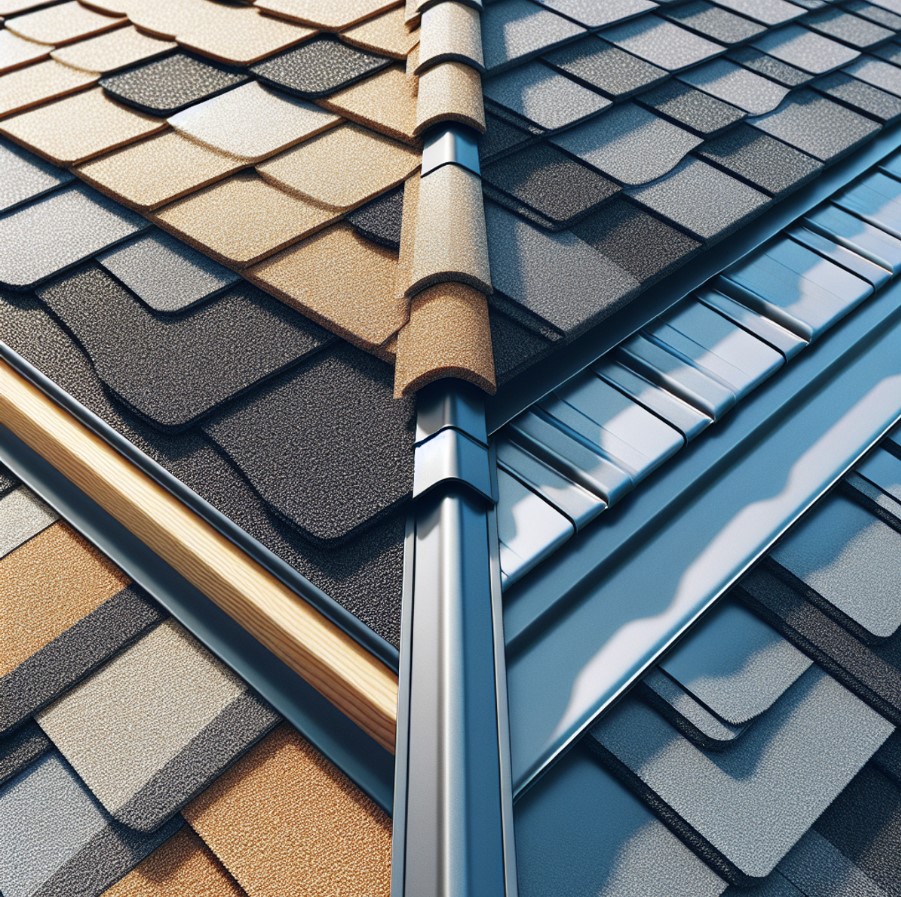
Table of Contents
When it comes to owning a home, there are many important decisions to be made. These choices can have a big impact on the overall quality and lifespan of your property. One decision that stands out above the rest is the type of roof you choose. Your roof is what protects your investment from the elements, so it’s crucial to make the right choice.
In this article, we’re going to dive deep into the debate between asphalt shingles and metal roofing. We’ll discuss the strengths and weaknesses of each option so that you can make an informed decision for your home.
Why This Matters for Tulsa Homeowners
If you’re a homeowner in Tulsa, understanding the differences between these two roofing options is especially important. Tulsa experiences a wide range of weather conditions throughout the year, including intense sun, heavy rainfall, strong winds, and occasional hailstorms.
With such diverse weather patterns, it’s essential to have a roof that can withstand whatever nature throws its way. The choice between asphalt shingles and metal roofing plays a significant role in determining how well your home holds up against these conditions.
What You’ll Find in This Article
Our goal with this article is to provide you with all the information you need to make an educated decision about your roof. We’ll cover various aspects of both asphalt shingles and metal roofing, including:
- Costs
- Installation processes
- Weather resistance features
- Aesthetic appeal
- Common myths surrounding each roofing type
By exploring these topics in detail, we hope to equip you with the knowledge necessary to choose the right roof for your home.
So let’s get started!
Understanding Asphalt Shingles
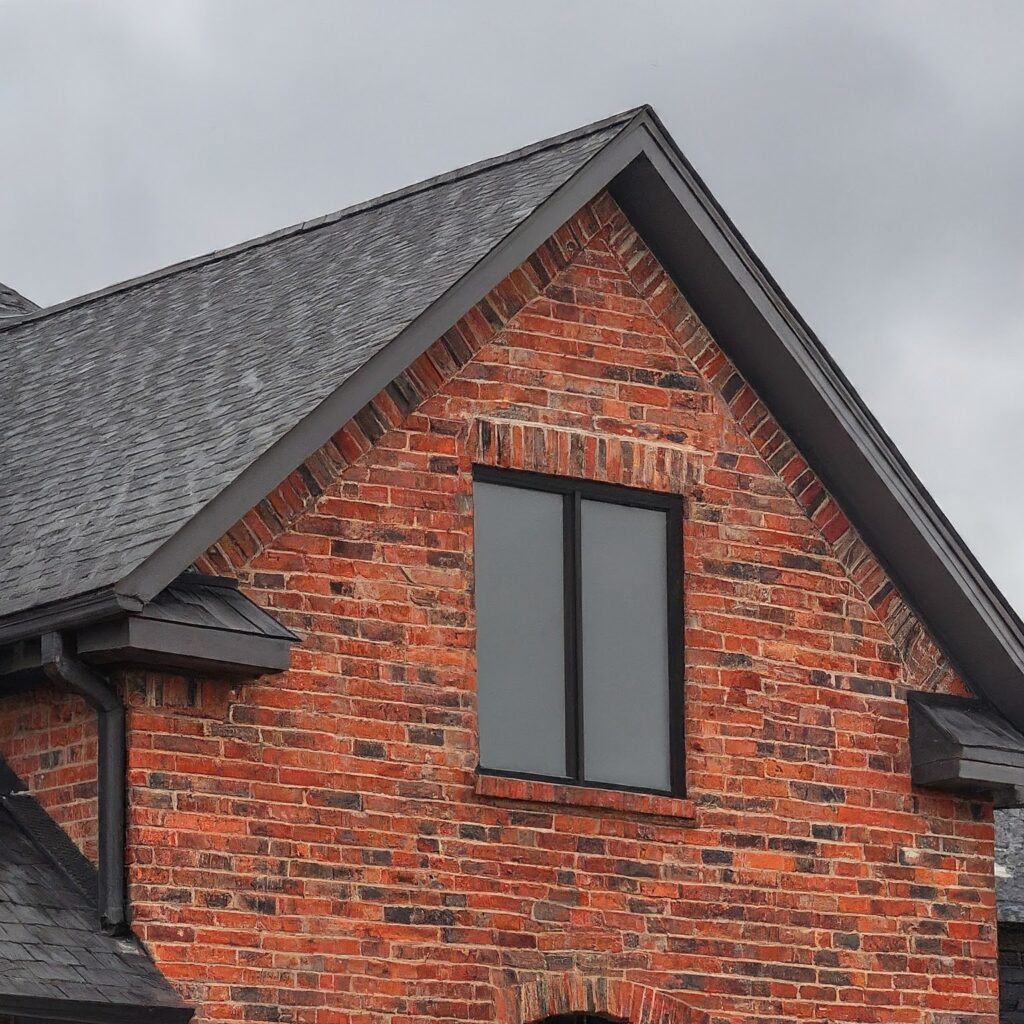
Asphalt shingles are a popular choice for roofs in Tulsa because they are affordable, reliable, and can be customized to fit any style. They have been the go-to option for residential roofing for many years due to their track record of success.
What Are Asphalt Shingles Made Of?
Understanding the composition of asphalt shingles is key to understanding why they are so durable and long-lasting. These shingles are typically made up of three main components:
- Fiberglass mat: This inner layer provides strength and prevents tearing.
- Asphalt coating: Applied to the fiberglass mat, this outer layer acts as a waterproof barrier against the elements.
- Granules: Crushed stone or minerals are embedded in the top layer of the shingle to protect against UV rays, add color, and increase durability.
This layered construction is what makes asphalt shingles sturdy and able to withstand various weather conditions. Additionally, adhesive strips on the underside of each shingle help keep them in place during strong winds.
How Long Do Asphalt Shingles Last?
When it comes to roofing materials, durability is crucial. Asphalt shingles offer a good balance between cost-effectiveness and lifespan, typically lasting 20 to 30 years with proper care. Here are some reasons why they are known for their performance:
- Water resistance: Asphalt shingles have excellent water-repellent properties, reducing the risk of leaks and water damage.
- Impact resistance: Some types of asphalt shingles are specially designed to withstand hailstorms and other impacts.
- Fire resistance: With a Class A fire rating, they provide effective protection against fires.
It’s important to note that these lifespan estimates can vary depending on factors such as climate, maintenance, and installation quality.
For commercial roofing projects where durability is crucial under different circumstances, Tulsa Roof Company can provide expert guidance on selecting the most suitable materials that meet both practical and architectural needs.
Considering Alternative Roofing Options
While asphalt shingles are a popular choice, it’s always worth exploring other roofing options to find the best fit for your specific needs. Metal roofing, for example, offers its own set of advantages such as longevity and energy efficiency.
When deciding on roofing materials, homeowners should take into account factors like:
- The local climate and how well the material can withstand it
- The architectural style of their home and whether the roofing option complements it
- Any specific requirements or preferences they have regarding maintenance or sustainability
By understanding the unique qualities of asphalt shingles and considering alternative solutions, homeowners can make an informed decision about their roof that will provide both protection and aesthetic appeal for years to come.
Exploring Metal Roofing
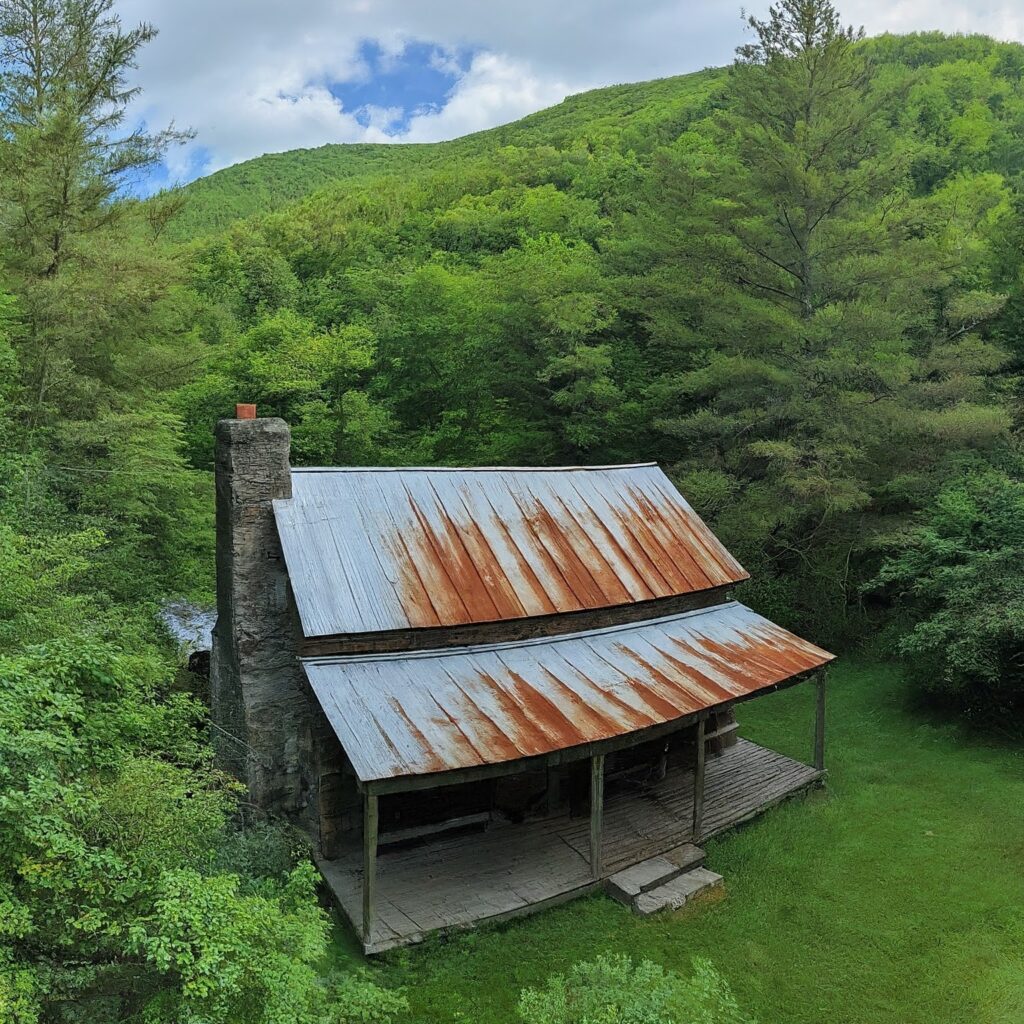
When it comes to roofing options, metal roofs have become increasingly popular in Tulsa. They are known for their ability to withstand the elements and their stylish appearance.
Types of Metal Roofs
There are several types of metal roofing materials available, each with its own unique qualities:
- Steel Roofs: These roofs are made from steel and are often coated with zinc to prevent rusting. They are extremely durable and can last for many years.
- Aluminum Roofs: Lightweight and corrosion-resistant, aluminum roofs are a great choice for coastal homes or areas with high humidity.
- Copper Roofs: Copper roofs are known for their distinctive look and ability to develop a natural patina over time, giving them a timeless appeal.
Understanding the differences between these types of metal roofs is important when making a decision for your home.
Benefits of Metal Roofs
Energy Efficiency
One of the key advantages of metal roofs is their energy efficiency. Unlike traditional asphalt shingles that absorb heat, metal roofs reflect sunlight, keeping your home cooler in the summer months. This can lead to reduced reliance on air conditioning and lower energy bills.
Environmental Sustainability
Another notable benefit of metal roofs is their sustainability. Most metal roofing materials are made from recycled content and can be recycled again at the end of their lifespan. This helps reduce waste and minimize the use of new resources compared to other roofing options like asphalt shingles.
The Appeal of Metal Roofs
With their combination of modern design, long-lasting performance, energy efficiency, and eco-friendliness, it’s no wonder why metal roofs are becoming a top choice for many homeowners in Tulsa.
The Great Debate: Asphalt Shingles vs. Metal Roofing for Your Tulsa Home
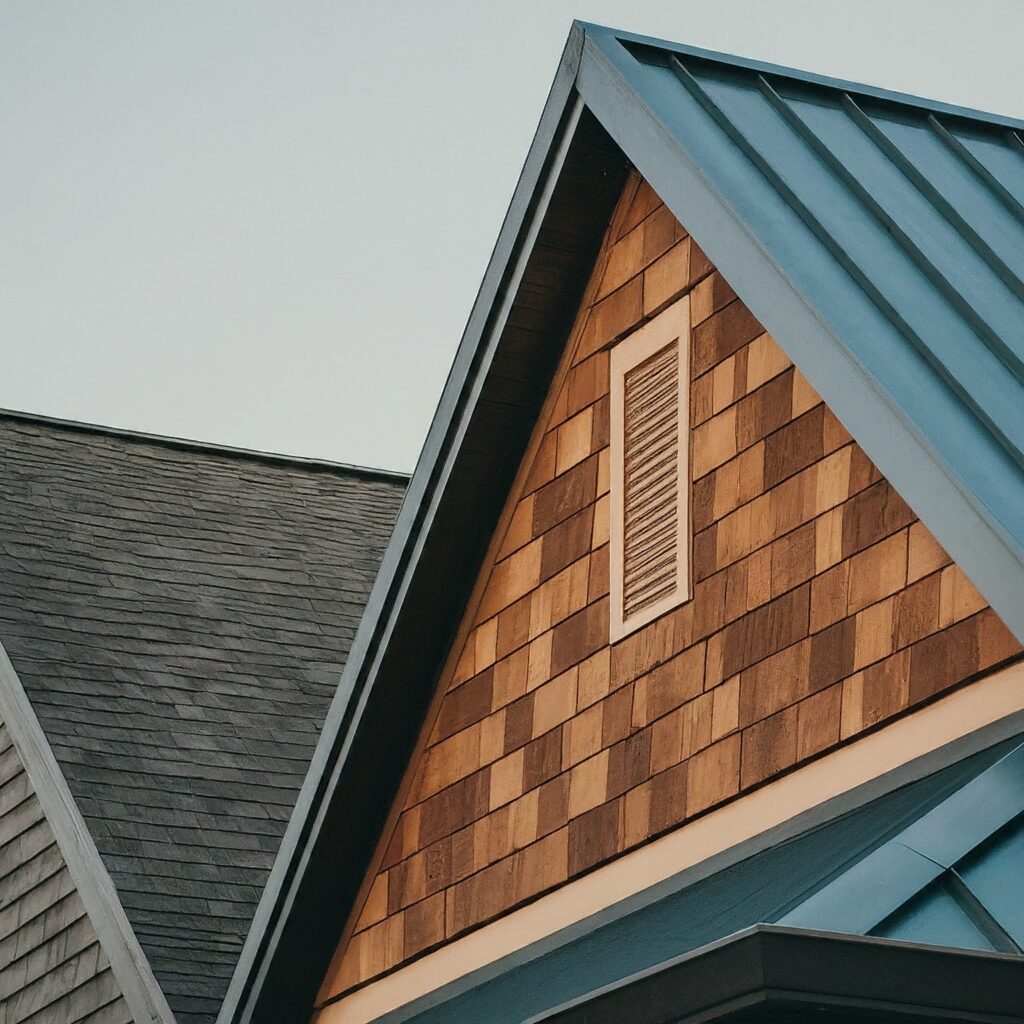
When it comes to choosing roofing materials for your home in Tulsa, there’s one decision that stands out: asphalt shingles or metal roofing? Both options have their pros and cons, and understanding them is crucial in making an informed choice.
Comparing Costs: Initial Investment and Long-Term Considerations
One of the main factors that homeowners consider when choosing roofing materials is cost. Here’s how asphalt shingles and metal roofing stack up:
- Asphalt Shingles: These are usually more affordable upfront compared to metal roofing. However, they may require more repairs over time and have a shorter lifespan.
- Metal Roofing: While the initial investment for metal roofs is higher, they can last up to 50 years or more with minimal maintenance. This means potential savings in the long run.
The Installation Journey: What to Expect During Roof Replacement or Installation Project
Understanding the installation process is essential for homeowners planning a roof replacement or installation project. Here’s a breakdown of what you can expect with both asphalt shingles and metal roofing:
- Preparation: The first step for any roofing project is preparing the area. This involves removing old materials and ensuring the roof deck is in good condition.
- Installation Complexity:
- Asphalt shingles are lightweight and easy to work with, which makes the installation process quicker.
- On the other hand, metal roofing requires more expertise due to its heavier nature and specific handling requirements.
- Duration:
- Installing an asphalt shingle roof typically takes a few days to complete.
- Metal roofs may take longer due to their intricacies, such as fitting metal panels or shingles precisely.
Evaluating the Value for Money Proposition of Asphalt Shingles and Metal Roofing in the Tulsa Context
When deciding between asphalt shingles and metal roofing, it’s essential to consider the value for money they offer in the specific context of Tulsa. Here are some factors to keep in mind:
- Durability: Tulsa experiences various weather conditions throughout the year, including storms and high winds. Metal roofing is known for its durability and ability to withstand such elements better than asphalt shingles.
- Energy Efficiency: Summers in Tulsa can get hot, which means homeowners often rely on air conditioning to stay comfortable. Metal roofs have reflective properties that help reduce heat absorption, potentially leading to lower cooling costs.
- Insurance Costs: Some insurance companies may offer discounts on premiums for homes with metal roofs due to their resistance against severe weather.
It’s crucial for homeowners to weigh these factors against their budget and long-term plans for the property. While metal roofing may require a higher upfront investment, its longevity and potential savings in maintenance and energy costs could make it a worthwhile choice for those looking for a long-term solution.
On the other hand, if budget constraints or shorter-term plans are a priority, asphalt shingles can still provide adequate protection for your home.
The selection between asphalt shingles and metal roofing depends on individual preferences, financial considerations, and specific housing needs. The following sections will delve into climate factors unique to Tulsa, aesthetic implications, as well as debunk common myths surrounding both roofing types.
Considering Climate Factors in Tulsa’s Unpredictable Weather
Tulsa, Oklahoma is known for its mixed bag of weather phenomena. From scorching summers to icy winters, it experiences a wide range of climatic conditions that can pose a challenge to the longevity and performance of roofing systems.
Climate suitability plays a pivotal role in the selection of appropriate roofing material. Let’s delve deeper into how Tulsa’s climate should influence your roofing decision-making process.
Tulsa’s Hot Summers and How Your Roof Should Respond
Tulsa summers can get extremely hot with temperatures often soaring above 90 degrees Fahrenheit. In such conditions, an ideal roof should not only withstand the heat but also reflect it to keep your home cool. Metal roofs excel in this regard due to their reflective properties, which help maintain indoor temperatures and reduce energy consumption.
Winter Woes: Dealing with Ice Dams and Snowfall
Winters in Tulsa bring their own set of challenges for roofs, especially in the form of ice dams and heavy snowfall. Both asphalt shingles and metal roofs are capable of bearing the weight of snow but dealing with ice dams requires an effective system for rapid snow and ice melt. Metal roofs, with their smooth surface, allow snow and ice to slide off easily, reducing the risk of ice dam formation.
How Resistance to Wind and Hail Matters
Tulsa is part of Tornado Alley and experiences strong winds and hailstorms. The durability of your roof against these elements becomes crucial. While both asphalt shingles and metal roofing offer wind resistance, metal generally stands up better to hail due to its robust structure.
Weather resistance features that matter for Tulsa roofs include:
- Heat Resistance: Ability to withstand high temperatures without compromising on performance.
- Snow/Ice Dam Resistance: Capability to prevent accumulation of snow/ice that can lead to leaks or structural issues.
- Wind/Hail Resistance: Durability to withstand high winds and resist damage from hail.
As we explore further into the choice between asphalt shingles and metal roofing, remember to consider these climate-related factors. The perfect roof for your Tulsa home should not only meet your budget and aesthetic preferences but also stand strong against the city’s unpredictable weather conditions.
Aesthetics Matter: Blending Style with Functionality for Your Tulsa Home’s Roof
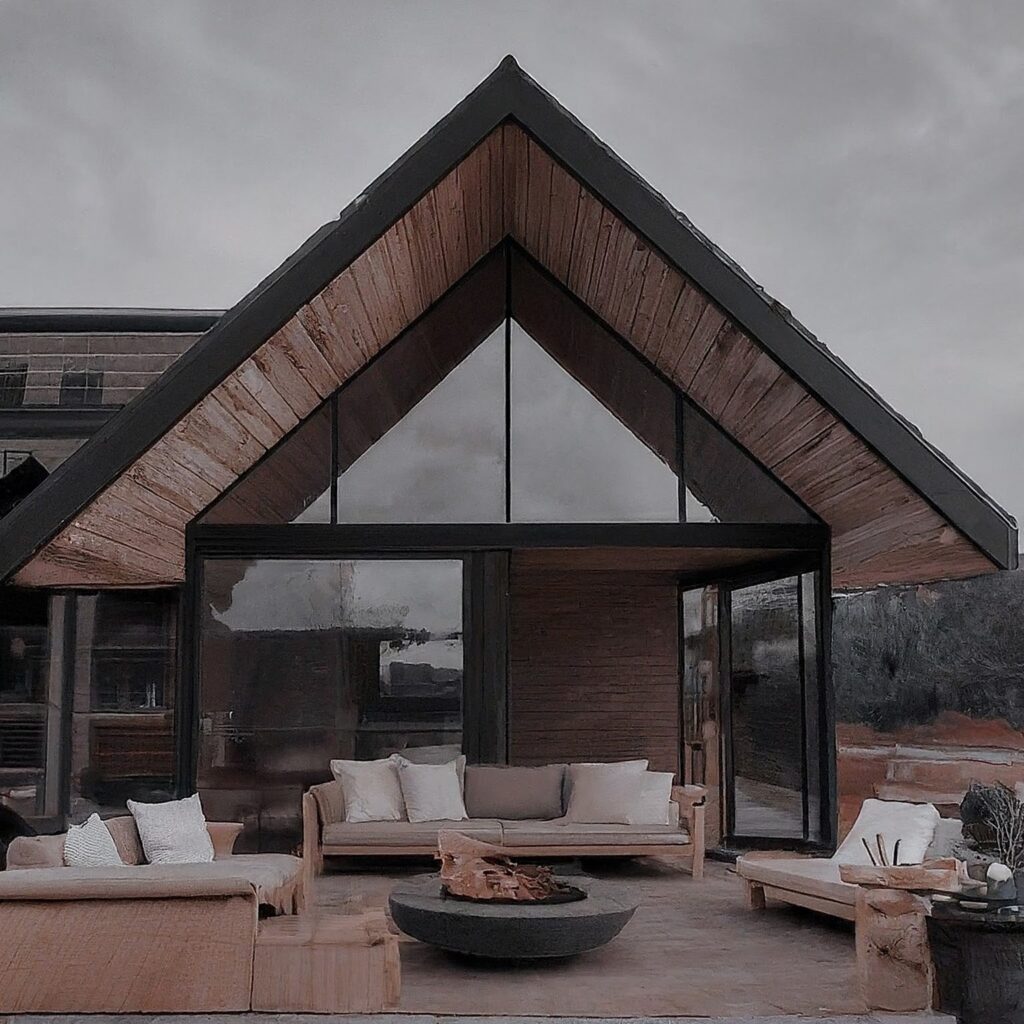
The roof of a home does more than protect against the elements; it is a statement of style and an essential element of a property’s aesthetic appeal. For homeowners in Tulsa, the choice between asphalt shingles and metal roofing is as much about the look as it is about durability and cost.
The Role of Roofing in Enhancing Curb Appeal
A roof can account for up to 40% of a home’s visible exterior, making it one of the most significant factors in curb appeal. In Tulsa neighborhoods, where architectural harmony is prized, selecting the right roofing material can complement the design and increase the overall value of a property.
Asphalt Shingles
- Traditionally favored for their versatility, asphalt shingles can match nearly any style of home. They are available in a wide array of colors from classic grays and browns to more striking blues and greens.
- Asphalt shingles come in various profiles including three-tab, architectural, and premium designer shingles. Each offers unique textural elements that can mimic other materials:
- Three-Tab Shingles: These are flat and uniform, giving a shingle-by-shingle appearance.
- Architectural Shingles: Known for their dimensional look, they offer shadow lines similar to wood shakes.
- Premium Designer Shingles: These replicate the natural beauty of slate or cedar shake roofs without the associated maintenance.
Metal Roofing
- Metal roofs offer a sleek, modern appearance with clean lines that pair well with contemporary designs. With finishes that mimic traditional materials like slate or wood, metal roofs can also blend seamlessly into more classic neighborhood aesthetics.
- Metal roofing systems present an extensive selection when it comes to types:
- Standing Seam: Characterized by raised interlocking seams that join panels together.
- Stamped Profiles: These resemble traditional tile, shake, or even shingle roofs.
- The color palette for metal roofs extends beyond traditional hues, with options that include vibrant reds or blues, providing an opportunity for homeowners to really personalize their homes.
Architectural Harmony
In Tulsa’s diverse housing market, both asphalt shingles and metal roofing can be adapted to suit various architectural styles:
- Historic Homes: Asphalt shingles are often chosen for older homes due to their ability to match existing styles.
- Modern Structures: Metal roofing complements modern architecture with its minimalist aesthetic.
Regardless of the material chosen, it’s crucial that Tulsa homeowners consider how their roof will integrate with their home’s existing architecture and color scheme. Both asphalt shingles and metal roofing offer solutions that balance function with aesthetic appeal, ensuring that practicality does not come at the expense of visual attractiveness.
Separating Facts from Fiction: Debunking Common Myths about Asphalt Shingles and Metal Roofing
In the search for the perfect roofing material, it’s important to separate fact from fiction. There are many misconceptions about asphalt shingles and metal roofs that can confuse you and make it difficult to make a decision.
Myth 1: Asphalt Shingles Are Inferior to Other Materials
Contrary to popular belief, asphalt shingles are not lower in quality compared to other roofing materials. They actually provide reliable and strong protection against different weather conditions. When properly maintained, high-quality asphalt shingles can last up to 30 years.
Myth 2: Metal Roofs Attract Lightning
One common myth is that having a metal roof increases the chances of your house getting struck by lightning. However, this is not true. Metal roofing does not attract lightning any more than other types of roofs. In addition, if a metal roof does get hit by lightning, its non-combustible nature helps reduce the risk of fire.
Myth 3: Metal Roofs Are Noisy
It’s easy to imagine that rain on a metal roof would create a lot of noise, like what you might hear on an old tin roof. However, modern metal roofing systems are designed with insulation and solid sheathing that significantly reduce noise levels, making them just as quiet as other roofing materials.
Myth 4: Asphalt Shingles Can’t Stand Extreme Weather
Some people believe that asphalt shingles are not able to withstand severe weather conditions. However, this is not true either. Asphalt shingles are actually designed to be resistant to extreme weather, including hailstorms and high winds. Many homeowners in Tulsa have experienced firsthand how durable asphalt shingles can be during storms.
Myth 5: Metal Roofs Are Too Expensive
While it’s true that the initial cost of installing a metal roof may be higher compared to asphalt shingles, it’s important to consider the long-term benefits. Metal roofs have a longer lifespan, typically lasting between 40 and 70 years. They also require less maintenance over time, which can lead to additional cost savings. So even though you may be spending more upfront, a metal roof often turns out to be more cost-effective in the long run.
Now that we’ve debunked some common myths about roofing materials, let’s move forward with accurate information and real-life data at our disposal. The journey towards making an educated choice between asphalt shingles and metal roofing for your Tulsa home continues.
Real-Life Experiences: Stories from Tulsa Homeowners Who Made the Choice
Case Study 1: Embracing Tradition with Asphalt Shingles
Consider the story of a Tulsa homeowner, Mike. When faced with roofing material options, he opted for asphalt shingles. He chose them because they were affordable, easy to install and repair. Mike also liked how asphalt shingles looked on his traditional home.
“Asphalt shingles were cost-effective and enhanced the overall appearance of my house,” says Mike.
Case Study 2: Switching to Modernity with Metal Roofing
On the other hand, Lisa, another Tulsa homeowner, decided to break away from traditional roofing choices and embraced metal roofing. Lisa was attracted to the long lifespan and durability of metal roofs. She also valued the energy efficiency benefits that this option offered.
“Switching to metal roofing was a long-term investment for me. I particularly liked that it could help lower my energy bills during our hot Oklahoma summers,” shares Lisa.
The Evolution of Roofing Choices in Tulsa’s Housing Market
While traditionally, asphalt shingles have been a common choice for Tulsa homeowners, there is a noticeable trend towards more modern solutions like metal roofing. This shift can be attributed to an increasing awareness about environmental sustainability and energy efficiency among homeowners.
For example:
- Jim, a local builder in Tulsa, noticed an uptick in requests for metal roofing installations over the past five years.
- Sarah, who runs a local real estate agency, mentioned that homes with metal roofs have become more appealing to new buyers due to their energy-saving features.
These case studies demonstrate how individual preferences, budget considerations, and evolving market trends influence the selection of roofing materials among Tulsa homeowners. Whether it’s sticking with time-tested options like asphalt shingles or stepping into the future with metal roofs, the choice ultimately depends on a homeowner’s unique needs and circumstances.
FAQs (Frequently Asked Questions)
What are the main differences between asphalt shingles and metal roofing?
Asphalt shingles are a timeless roofing option for many homes in Tulsa, known for their durability and performance. On the other hand, metal roofing systems offer modern appeal and longevity, contributing to energy efficiency and environmental sustainability in Tulsa homes.
What is the composition of asphalt shingles and how does it contribute to their durability?
Asphalt shingles consist of layers of protection that ensure their durability and performance. This composition provides a timeless roofing option for many homes in Tulsa.
What are the different types of metal roofing and how do they contribute to energy efficiency?
Metal roofs come in different types, each with unique characteristics that contribute to energy efficiency and environmental sustainability in Tulsa homes.
How do the costs of asphalt shingles and metal roofing compare, both initially and in the long-term?
Comparing costs involves evaluating the initial investment as well as long-term considerations. It’s important to consider the value for money proposition of both asphalt shingles and metal roofing in the context of Tulsa.
How does Tulsa’s climate influence the decision-making process when choosing between asphalt shingles and metal roofing?
Tulsa’s climate considerations should play a significant role in influencing your roofing decision-making process. It’s crucial to understand the weather resistance features that matter for roofs in Tulsa.
What role does aesthetics play when choosing between asphalt shingles and metal roofing for a Tulsa home?
Aesthetics matter when it comes to enhancing curb appeal and architectural harmony in Tulsa neighborhoods. Both asphalt shingles and metal roofing offer a diverse range of colors and styles to choose from.
What are some common misconceptions about asphalt shingles and metal roofing that may cloud judgment when making a choice?
There are common misconceptions about these roofing materials that may affect your judgment. It’s important to debunk these myths with accurate information and real-life data.
Conclusion
Selecting the best roofing option for your Tulsa home requires considering various factors. Homeowners should compare asphalt shingles and metal roofing based on their specific needs, budget, and long-term goals for their property. Roofing experts in Tulsa recommend evaluating both materials using the following criteria:
- Durability and Longevity: Asphalt shingles are reliable and last 20 to 30 years, while metal roofing can exceed 50 years with proper maintenance.
- Cost Effectiveness: Although asphalt shingles have a lower initial cost, metal roofing can offer more savings over time due to its energy efficiency and low maintenance requirements.
- Aesthetic Preferences: Your choice may also depend on the desired look for your home; asphalt shingles provide a traditional appearance, while metal roofing offers sleek, modern designs.
- Environmental Impact: If sustainability is important to you, it’s worth noting that metal roofs are often made from recycled materials and can be fully recycled at the end of their lifespan.
By seeking advice from experienced professionals at Tulsaroofcompany.com, you can make an informed decision backed by over two decades of expertise in Tulsa’s unique housing market.